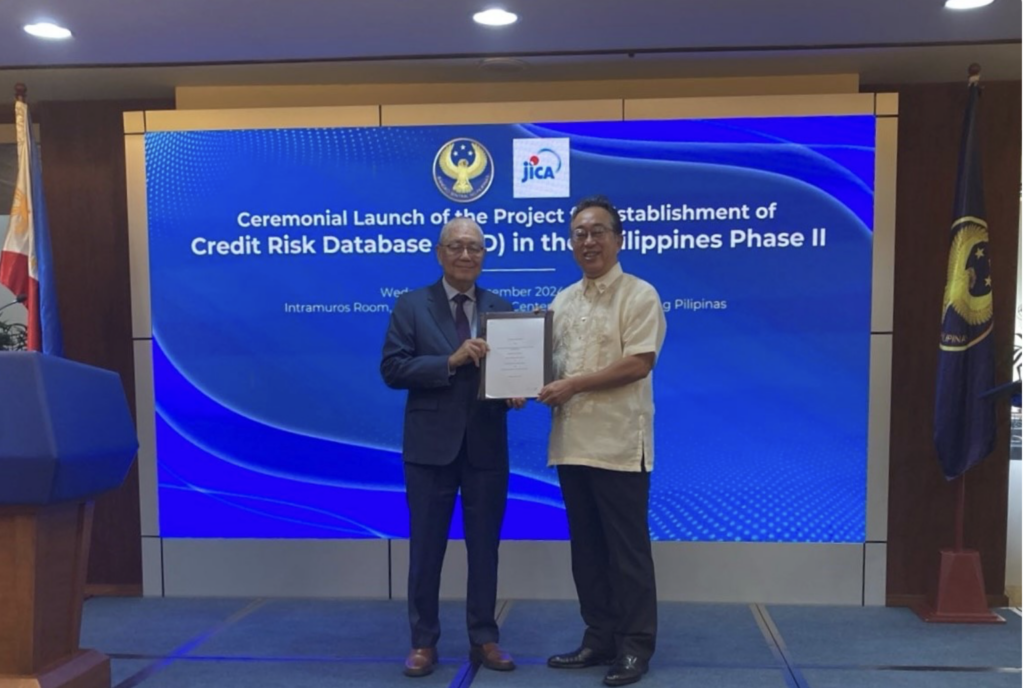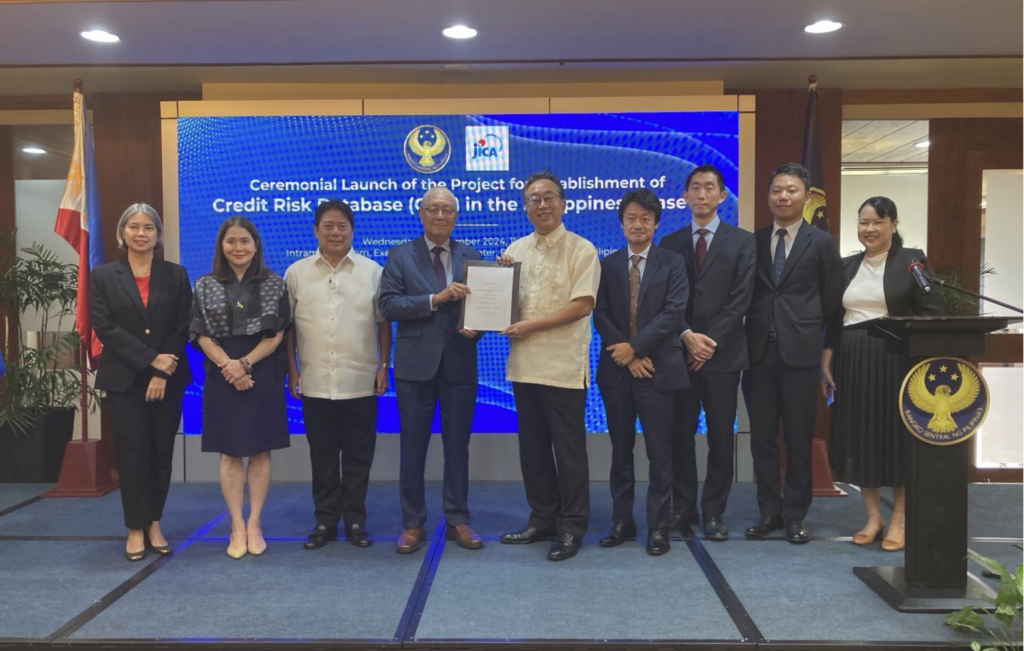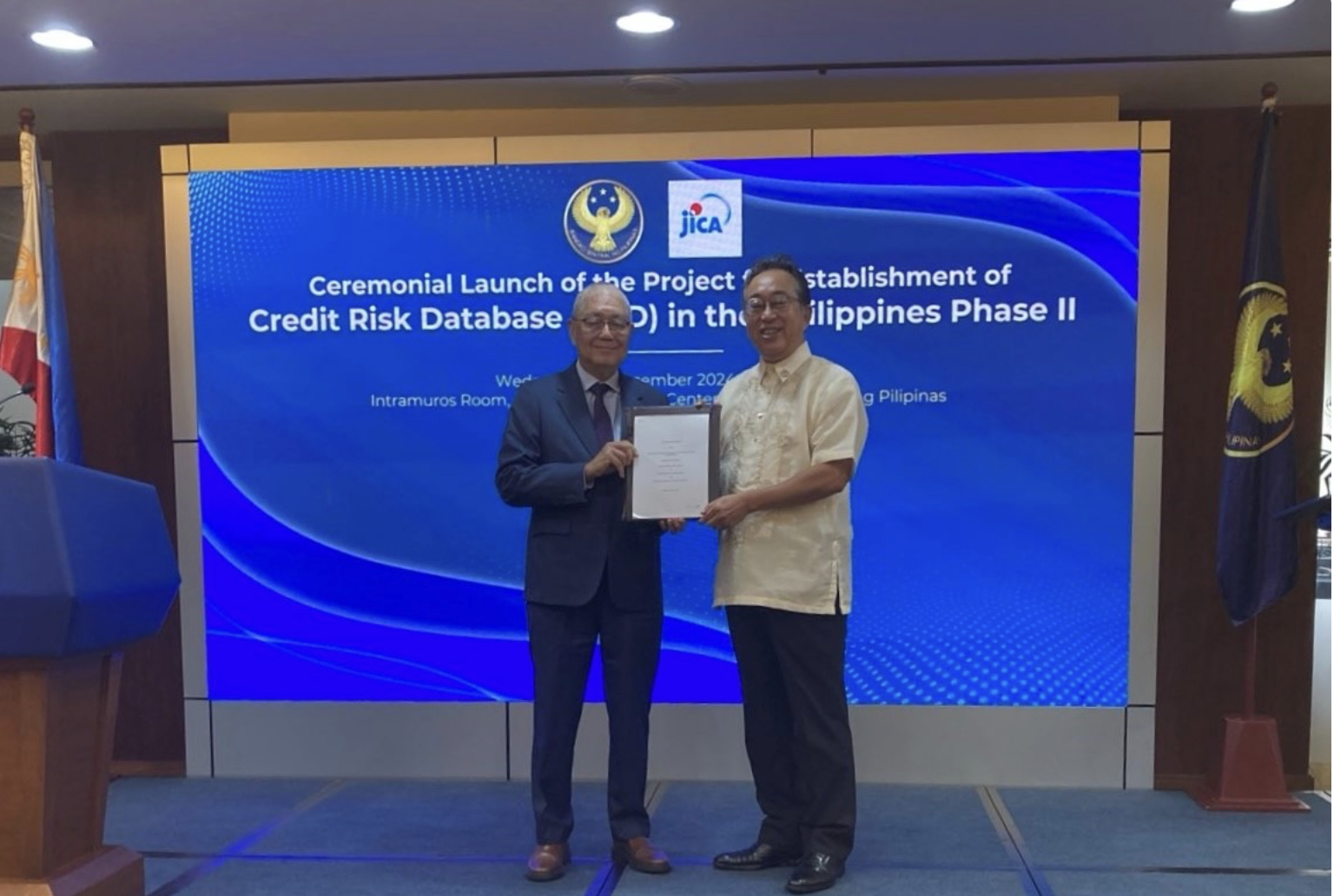Good news! Small and medium enterprises (SMEs) in the Philippines can now rejoice as the Philippine government takes a significant step towards unlocking their immense potential.
The Japan International Cooperation Agency (JICA) and the Bangko Sentral ng Pilipinas (BSP) have officially launched the second phase of their groundbreaking Credit Risk Database (CRD) project, a game-changer designed to revolutionize SME lending in the country.

BSP Governor Remolona and JICA Philippines Chief Representative Sakamoto
The first phase, launched in 2020, aimed to bridge the notorious financing gap faced by SMEs, a critical segment of the Philippine economy despite contributing a significant portion to national output. Recognizing the limitations of traditional collateral-based lending, which often excludes SMEs lacking substantial assets, the project champions a risk-based lending approach.
At the heart of this innovation lies the CRD scoring model, meticulously developed by JICA and BSP with the support of CRD Association Japan.
This model leverages anonymized financial data submitted by participating financial institutions to assess the creditworthiness of SMEs with unprecedented accuracy.
Earlier this year, Fitch Ratings has reported that digital banks in the Philippines are encountering significant risks in maintaining asset quality as they work to serve the country’s vast unbanked and underbanked population.
JICA: PH model to prioritize data privacy, confidentiality

BSP Governor Eli M. Remolona, Jr. and Chief Representative of JICA Philippines Office Sakamoto Takema (4th and 5th from left) present the ‘Records of Discussion’ for the 2nd phase of the Credit Risk Database project at the BSP head office in Manila. With them are (from left) BSP Managing Director Charina De Vera-Yap, Deputy Governor Bernadette Romulo-Puyat, Monetary Board Member Jose L. Querubin, Embassy of Japan (EOJ) Minister for Economic Affairs Nihei Daisuke, JICA Senior Representative Fukui Keisuke, EOJ Second Secretary Sugimoto Kensuke, and JICA Section Chief Leah Penarroyo.
Drawing inspiration from Japan’s successful CRD system, which boasts a database of over 3 million SMEs, the Philippine model prioritizes data privacy and confidentiality while providing valuable insights into SME credit risk.
The initial phase witnessed remarkable success, with 17 pioneering financial institutions embracing the CRD and contributing crucial data. As the project gained traction and its merits became evident, 16 more institutions joined the fold, underscoring the growing recognition of its transformative potential.
“The commencement of the second phase signifies a crucial milestone in our ongoing collaboration with JICA,” emphasized BSP Governor Eli Remolona Jr. “This project is akin to building the essential ‘plumbing’ of our banking system, ensuring a steady and reliable flow of credit to the lifeblood of our economy.”
The second phase will focus on several key areas. Maintaining the integrity and security of the database is paramount, requiring robust data governance and a seamless data provision mechanism for participating institutions. Continuous refinement of the scoring model through rigorous internal and third-party validation is crucial to ensure its accuracy and maintain the trust of all stakeholders.
Furthermore, the project will prioritize building the necessary expertise and capacity within the Philippine financial sector to effectively oversee and utilize the CRD. This includes exploring the establishment of a dedicated operating entity to manage and maintain the CRD services in the long term, ensuring its sustainability and continued relevance.

Shaping the future of a vital initiative for SMEs
“We believe that the principles of confidentiality, open access, transparency, and fairness are the cornerstones of a successful and sustainable CRD operating entity,” stated JICA Philippines Chief Representative Sakamoto Takema.
“Open and inclusive discussions among all stakeholders will be crucial in shaping the future of this vital initiative,” he added.
The JICA-BSP CRD project aligns perfectly with the Philippine government’s digital transformation agenda, leveraging technology to modernize the financial sector and enhance financial inclusion.
By empowering SMEs with access to affordable and accessible credit, this initiative has the potential to unleash a wave of economic growth, create jobs, and improve the livelihoods of millions of Filipinos.
As the project enters its second phase, stakeholders must remain committed to its core principles – data security, model accuracy, and collaborative governance – to ensure its continued success and solidify the Philippines’ position as a leader in innovative and inclusive SME finance.








